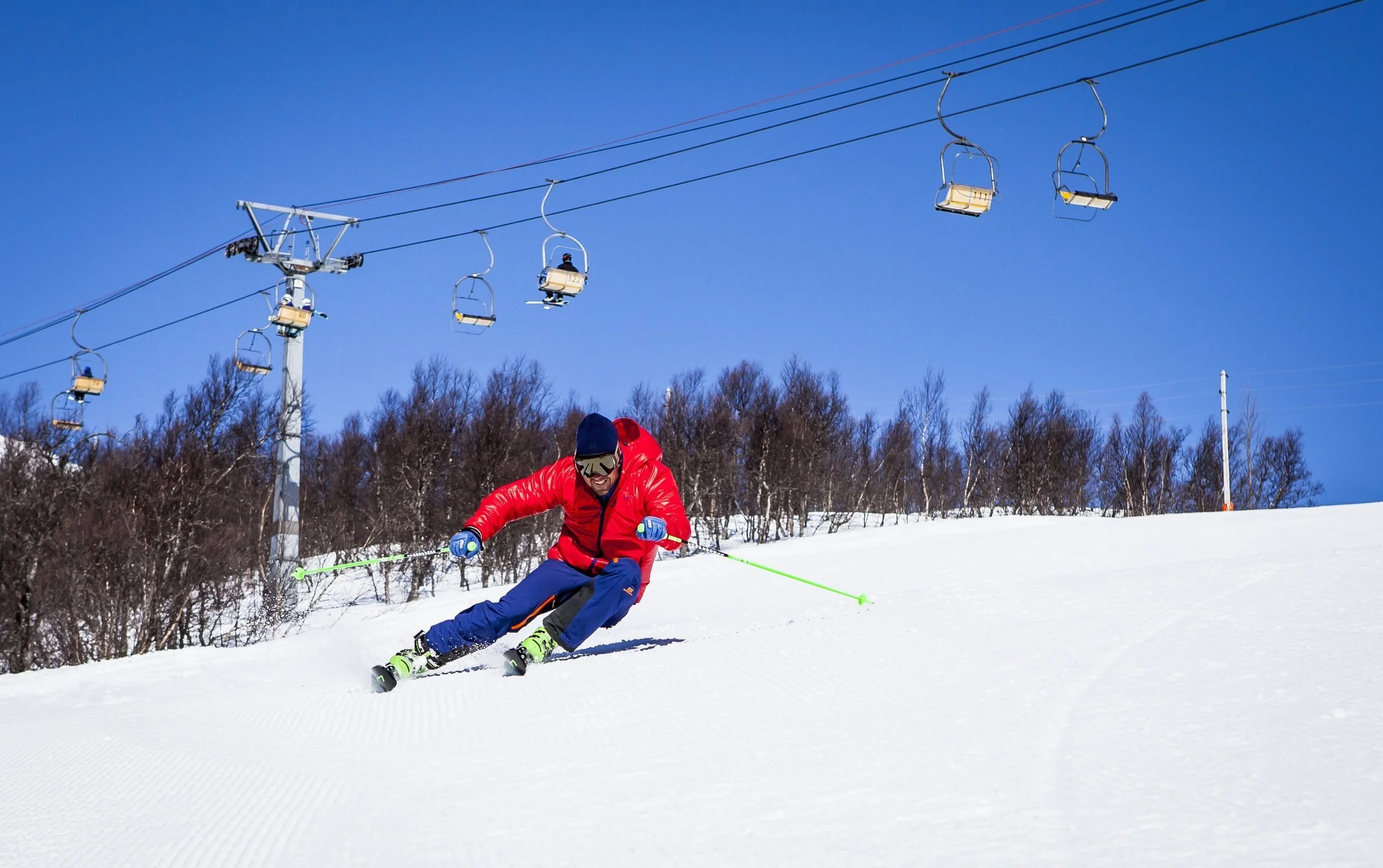Lack of Access to Skiing in Scotland
A skier at the top of his game, enjoying the best of the snow
I love skiing, although I have not been able to get up to the slopes for some time. I was inspired to write this after significant snow falls, because while those conditions may sound cold and miserable to readers used to warmer climes, all I really wanted to do was go skiing. But it was impossible.
I live in Aberdeen in the northeast of Scotland. Aberdeen is approximately a two-hour drive from the nearest Scottish ski resort. Scotland has five ski resorts that attract tourists from all over the world. There are three in the east, and two in the western Highlands. The breathtaking scenery at all five is really something to behold. Scotland’s ski resorts are as follows: Glenshee; The Lecht; The Cairngorms; Glencoe; and The Nevis Resort. All five offer the comprehensive range of quality services that anyone would expect from a Scottish ski resort, including:
● A full range of slopes rated from green to black (something for everybody);
● Ski and snowboarding equipment hire;
● Opportunities to learn how to ski or snowboard; and
● Excellent catering facilities.
They also each have their unique attractions. However, there is one major problem with them all: a lack of accessibility.
Scottish ski resorts’ accessibility problem
With the exception of the Cairngorms, which is well served by Aviemore, and possibly Glencoe, which is on a regular bus route, it is almost impossible to gain access to Scottish ski resorts without owning (or hiring) a car. Let’s look at the resorts in the east first, before moving to the west.
Glenshee is situated 10 miles (~16 km) beyond Braemar, which is the final stop on the Royal Deeside tour. There is nothing beyond that. If you are dependent on public transport, Glenshee is completely out of the question, as the only way there is to hire a taxi from Braemar, which would add GBP26 (~USD32) each way, i.e. GBP52 (~USD65) for each day of skiing. There is a private hire bus laid on by a ski club in Glasgow, but if you are not in that area, and presumably not a member of the club, this is out of the question.
The Lecht is even further off the beaten track, as the resort is more than 16 miles (~26 km) from Ballater on the B976, one of the highest roads in the country. There is no public transport across the pass at all. A taxi from Ballater would cost at least GBP40 (~USD50) each way, or over GBP80 (~USD100) per day of skiing. This would render it completely out of the question for many. There is no rail access to either the Glenshee or The Lecht resorts at all. The nearest railway station is in Aberdeen, approximately 53 miles (~85 km) away from the nearer of the two.
Glencoe fares slightly better. Being on the A82, it is on the route of the Glasgow to Fort William bus, which stops right outside the door. However the nearest railway station (Bridge of Orchy) is 13 miles (~21 km) away.
The Nevis Resort is seven miles (~11 km) from Fort William, which is served by rail. Nevis is the adventure sports capital of the UK, and one could reasonably expect good transport links right to the door, but this is not the case. Despite the fact it is also situated along the route of the A82, there is no bus connection to it, as it is seven miles (~11 km) off the arterial road. There is a family-owned bus company that connects the town to the resort. However, for a resort of this reputation, at the epicentre of adventure sports in the UK, this offers a very poor service. It all goes to reinforce the belief that access to one’s own means of transport is a prerequisite to engaging in these sports; that skiing is an elitist activity for the haves, not the have-nots.
While Scotland has amazing skiing and winter sports facilities that are enjoyed by tourists from all over the world, there are serious issues with accessibility for Scots. The assumption that we all own our own vehicles is a serious hindrance to those of us who, for whatever reason, don’t. The reason could be as simple as the lack of financial means to run a car or even to hire one. Or it could be for medical reasons, such as epilepsy; an entirely ‘invisible’ condition that carries with it an automatic ban on holding a driving licence unless it is controlled by medication. Also read Chris Greenwood’s “Good Tourism” Insight “Why VisitScotland declared a climate emergency …” The reason might even be because some Scots think VisitScotland and the Scottish government are correct in declaring a ‘climate emergency’; that affordable, efficient, low-emissions public transport for everyone is a worthy goal. Scottish ski resorts’ accessibility is something that VisitScotland, the resorts themselves, and the body in charge of winter sports in Scotland (Snowsports Scotland) need to address. Improving access would go a long way to opening up Scottish ski resorts to the wider Scottish public, reducing the resorts’ dependence on jet-setting skiers and winter sports enthusiasts, and reducing Scotland’s dependence on cars.
This article first appeared as an Insight in The Good Tourism Blog on 9 May 2023

